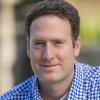At a Washington hotel Thursday, more than a thousand prominent Catholics -- members of Congress, clergy and policy leaders -- listened to Texas Gov. Greg Abbott give a keynote address at the National Catholic Prayer Breakfast.
The annual event, billed as a nonpartisan affair, has over the last decade become a platform for GOP politicians to enjoy a photo-op with a member of the Catholic hierarchy. It's also a free pass for Republicans to burnish their "pro-life" credentials without the inconvenience of having to explain how their positions on capital punishment, war, the environment and other moral issues clash with traditional church teaching.
In the era of Pope Francis, the whole event has the taste of rotten eggs that should have been thrown out long ago.
The choice of a pro-death-penalty Catholic governor to give a keynote address -- alongside the bishop of Buffalo, N.Y. -- should raise eyebrows. Pope Francis and Catholic leaders across the ideological spectrum have drawn renewed attention to this morally grotesque and often error-prone use of state power to decide who lives and dies. Francis calls capital punishment "unacceptable" and describes it as "cruel, inhumane and degrading." Pope John Paul II, whose staunch opposition to abortion is often referenced by conservatives, also called for an end to the death penalty. The "dignity of human life must never be taken away, even in the case of someone who has done great evil," he said in a homily in St. Louis 16 years ago.
In January, Cardinal Sean O'Malley of Boston, chair of the bishops' pro-life committee, welcomed the U.S. Supreme Court's decision to review the drug protocols of lethal-injection executions in Oklahoma and sent a reminder that the bishops' conference has worked to end the use of capital punishment for over four decades. The Catechism of the Catholic Church, while not excluding the use of capital punishment if it is the only recourse to protect society, quotes Pope John Paul II's encyclical The Gospel of Life in clearly stating that those situations are "very rare, if practically non-existent." Two months ago, during the lead-up to Holy Week, when Christians observe a somber liturgical season that commemorates the torture and state execution of Jesus, 400 Catholic and evangelicals spoke out against the death penalty as "the rotten fruit of a culture that is sown with the seeds of poverty, inequality, racism and indifference to life."
Abbott doesn't seem to be sweating the incongruity of touting his "pro-life" bona fides while overseeing one of the most notorious and deeply flawed state killing machines in the world. During his campaign for governor, Abbott was asked about whether his Catholic faith and pro-death-penalty position raised any moral tensions. "Catholic doctrine is not against the death penalty, and so there is no conflict here," the Republican nominee breezily told the San Antonio Express-News editorial board.
Given the rightward drift of the Catholic political narrative in recent years -- as debates over religious liberty, contraception coverage and the bishops' opposition to gay marriage dominate headlines -- you're forgiven if you forgot that the church's defense of the sanctity of life is not a single-issue or partisan cause. Catholic teaching regards abortion as a foundational right to life issue, but one never to be severed from the church's insistence that all threats to human life and dignity are intimately connected. For the Catholic church, protecting life in the womb is part of a consistent ethic that recognizes that the life of the migrant crossing a desert, the life of an inmate on death row and the life of a dying patient in hospice are all sacred because all are created in the image of God.
The National Catholic Prayer Breakfast -- whose board includes several Catholic advisers to past GOP presidential candidates -- seems to prefer speakers of a certain ideological stripe. Past speakers include President George W. Bush (who gave the keynote address for four straight years), Rick Santorum, Newt Gingrich and U.S. Supreme Court Justice Antonin Scalia. A charter member of the organization's "Founders Circle," Austin Ruse of the Catholic Family & Human Rights Institute, made news earlier this year for saying that "the hard-left, human-hating people that run modern universities should be taken out and shot."
There are good, faithful Catholics in both political parties. Catholics who worship together on Sunday can disagree over public policy on Monday. But when a national Catholic event that attracts leading Republican politicians and Catholic bishops consistently sends a message that being "pro-life" or "pro-family" can be reduced to a narrow agenda that aligns with one political party, that is a problem.
Pope Francis is pushing Catholic leaders to emphasize a broader voice in the public square. "We cannot insist only on issues related to abortion, gay marriage and the use of contraceptive methods," the pope has said bluntly. Francis has highlighted the death of migrants, environmental degradation, growing economic inequality and capital punishment as central pro-life concerns that are never optional for anyone serious about addressing what he calls a "globalization of indifference."
Catholic Republicans have every right to dress up and pat themselves on the back at fancy events in Washington. So do Catholic Democrats, for that matter. Who wants to stand between a hungry lobbyist and a side of bacon, anyway? Bishops, on the other hand, should push away the free plate and get back to work building that "poor church for the poor" their boss in Rome thinks is central to a job description originally found in the Gospel.
[John Gehring is Catholic Program Director at Faith in Public Life. Follow him on Twitter: @gehringdc.]



